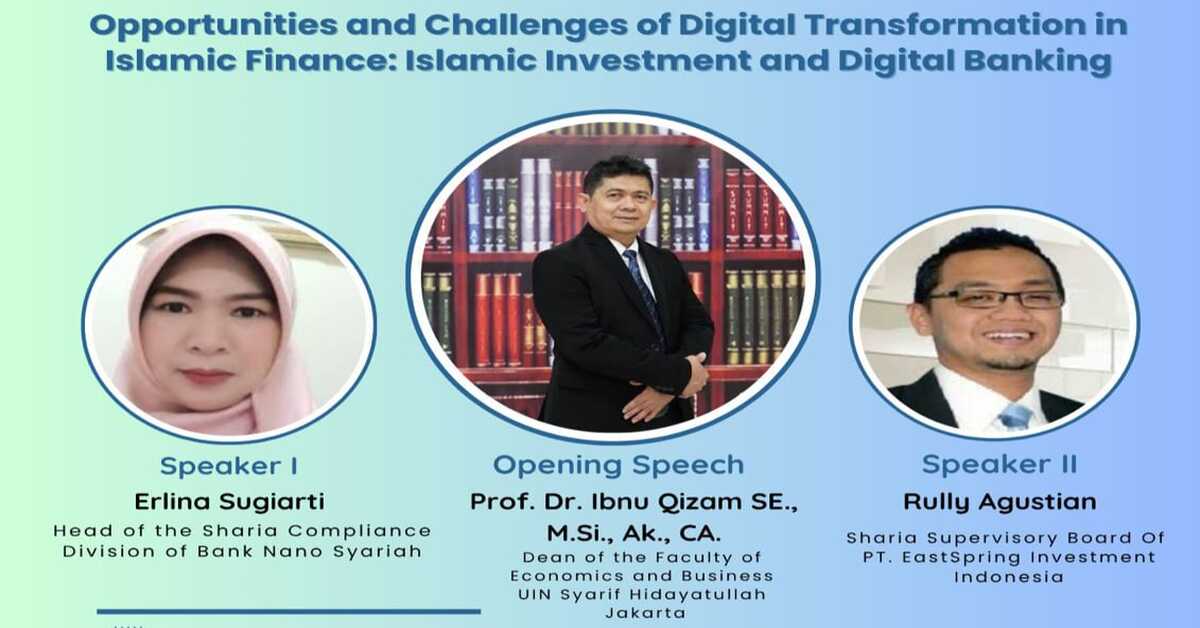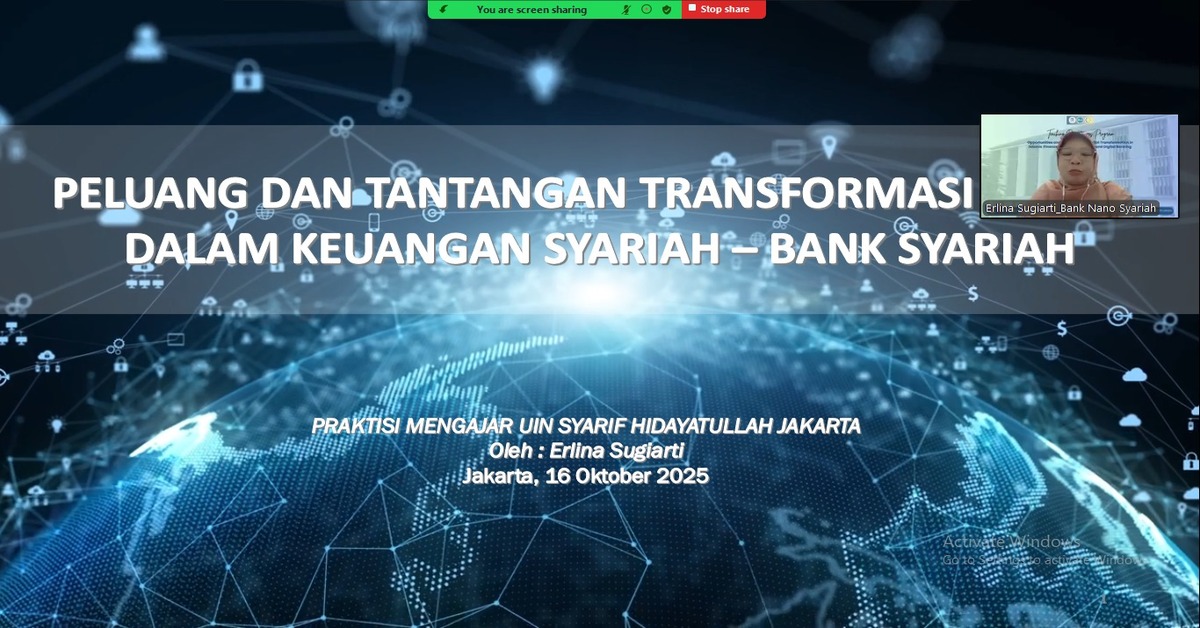Sharia Banking Study Program Holds Practitioner Teaching Session with Theme of Digital Transformation for Banking Competitiveness
Jakarta, October 16, 2025 - The Sharia Banking Study Program of the Faculty of Economics and Business at UIN Jakarta held a Teaching Practitioners Program. The event was attended by students in their 5th and 7th semesters. During the session, students gained an understanding of digital transformation in Islamic finance, enhanced their practical knowledge through direct experience from practitioners, and were equipped with critical, adaptive, and innovative skills to address technological developments in the Islamic banking sector.
This hybrid event was opened with a speech by Dr. Yuke Rahmawati, MA, Head of the Sharia Banking Study Program at FEB UIN Jakarta, who expressed her appreciation for the opportunity to have speakers who provided new insights to 5th and 7th semester students and emphasized the importance of facing the opportunities and challenges of digital transformation in Islamic finance. “Thank you very much to the speakers who came to provide insights and motivation to the students,” said Yuke.
Next, the welcome speech and opening remarks were delivered by the Vice Dean I of the Faculty of Economics and Business, Dr. Sofyan Rizal, S.E., M.Si., who emphasized the importance of this activity in providing an understanding of the digital transformation of Islamic finance, broadening students' practical knowledge through direct experience from practitioners, and equipping them with critical and adaptive skills to deal with technological developments in the Islamic banking sector. “FEB UIN Jakarta consistently invites practitioners to provide practical insights on the knowledge that has been taught in class, especially about banking,” said Sofyan.
During the presentation session, the guest speaker, Mr. Rully Agustian, Sharia Supervisory Board of PT. Eastspring Investments Indonesia, explained how digital transformation has become a strategic momentum for strengthening the Islamic economy and finance. By utilizing technology (AI, blockchain, fintech), the Islamic finance sector can become more inclusive, efficient, and competitive.
Next was a presentation by Erlina Sugiarti, Head of the Sharia Compliance Division at Bank Nano Syariah, who explained that digital transformation is an important momentum for sharia finance to strengthen competitiveness, expand public access, and improve efficiency.
The discussion was moderated by Ivalaili and Aini Masruroh, who are lecturers in the Sharia Banking study program. The event concluded with a group photo and the presentation of certificates of appreciation. (AC)


